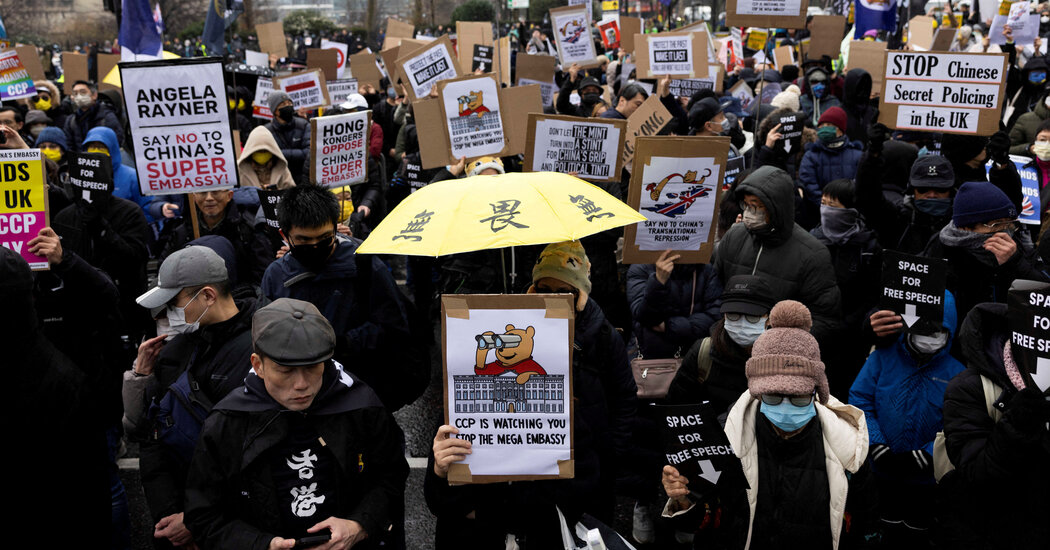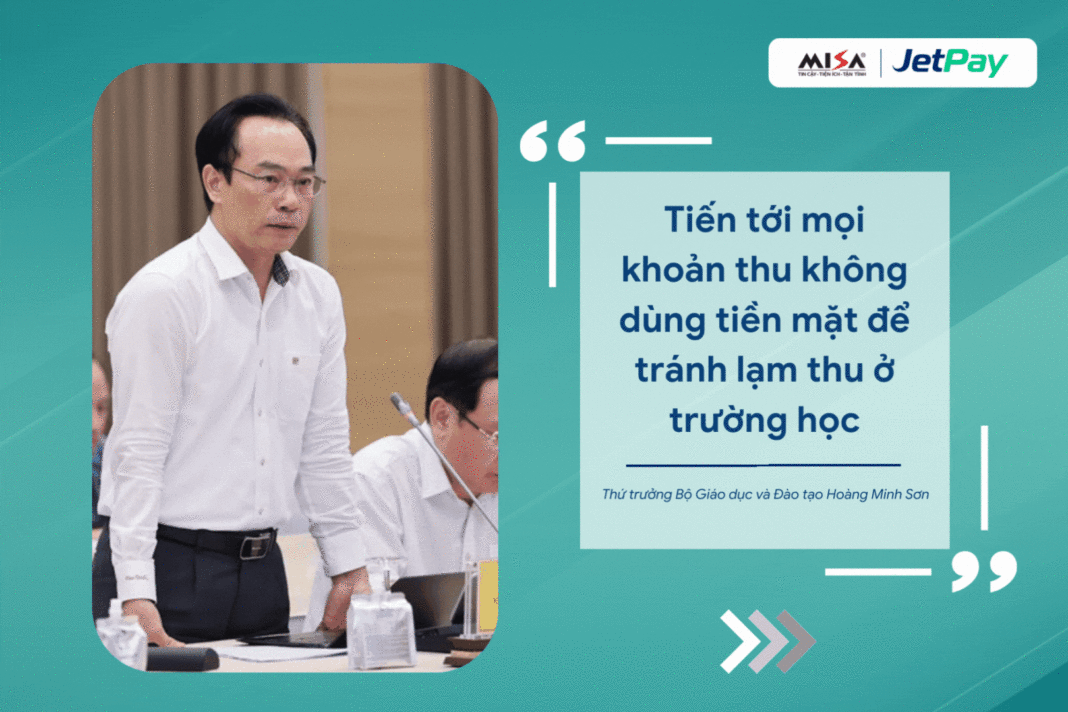It was the site of Britain’s Royal Mint, where coins were struck from 1810 to 1975. It sits atop the ruins of a Cistercian abbey dating to the 14th century, as well as a burial ground from the Black Death. And from the 16th century to the early 18th century, it was a supply yard for the Royal Navy.
Now the storied compound known as Royal Mint Court is on the brink of a new chapter as the home of the Chinese Embassy in London. If Britain’s Labour government approves the project, as seems likely, China will move its embassy from its current quarters in Marylebone to an imposing, 5.5-acre complex across town, which would be the largest diplomatic outpost in Europe.
Handing Beijing such a prime piece of real estate, next to the Tower of London and in the shadow of the skyscrapers of London’s City, has set off a storm of opposition from neighborhood residents, China hawks in the British Parliament and Hong Kong democracy advocates who have resettled in Britain.
Some say China could use the embassy, with its proximity to strategic fiber-optic cables that snake under the financial district, to spy on dissidents and ordinary Britons. Others claim its location, on a busy road just off the Tower Bridge, would make it hard for crowds to gather to protest issues like Beijing’s crackdown on Hong Kong or its persecution of ethnic minorities in Xinjiang.
“This is not just a building; this is an extension of the Chinese Communist Party’s power in the U.K.,” said Chloe Cheung, a representative of the Committee for Freedom in Hong Kong Foundation, a pro-democracy group, as she spoke to more than 1,000 protesters who rallied at the site this month.
Ms. Cheung, who left Hong Kong in 2020, warned that the supersized embassy would be “about control, fear and silencing voices.” She noted that the Hong Kong authorities had offered a reward for her arrest.
The protesters, many of whom, like Ms. Cheung, are immigrants from Hong Kong, brandished banners and placards that read, “CCP is Watching You. Stop the Mega Embassy!” But afterward, as they politely tidied up the site, several acknowledged there had been a shift in the political winds.
In 2022, the borough council of Tower Hamlets denied permission for the project. But China resubmitted the proposal after the Labour Party swept into power last July. China’s top leader, Xi Jinping, raised the matter in a call with Prime Minister Keir Starmer, and Mr. Starmer later told him the government had “called in” the planning application, giving it the ultimate say on whether it gets a greenlight.
A public inquiry on the proposal ended on Wednesday, and a decision by Housing Secretary Angela Rayner is expected by the summer.
Two of her fellow ministers — David Lammy, the foreign secretary, and Yvette Cooper, the home secretary — gave the plan provisional support last month. In a letter to the council, Mr. Lammy and Ms. Cooper noted that the Metropolitan Police had dropped an earlier objection that the site could not accommodate demonstrations without disrupting nearby roads.
“Given the importance of countries having functioning diplomatic premises in each other’s capitals,” they wrote, “it is right that China is able to carry out its diplomatic work in the United Kingdom, as the United Kingdom does in China.”
The Chinese Embassy in London did not respond to a request for comment. But last month, a spokeswoman for China’s Ministry of Foreign Affairs, Mao Ning, said, “It is the international obligation of host countries to provide support and facilitation for the building of diplomatic premises.”
Britain’s government has plenty of reasons to break the deadlock. The Chinese authorities have blocked Britain’s plans to rebuild its embassy in Beijing while they await approval for theirs. Britain is looking to China as a source of foreign investment at a time when its economy is stagnating and its relationship with the United States is uncertain. The chancellor of the Exchequer, Rachel Reeves, recently visited Beijing, drumming up 600 million pounds ($756 million) of commitments.
“There’s no question that British policy was very pro-China under David Cameron, then switched to being hostile toward China under subsequent governments, and now has switched back to being more accommodating,” said Tony Travers, professor of politics at the London School of Economics.
Mr. Cameron, a Conservative who was prime minister from 2010 to 2016, famously declared a “golden era” of economic ties between Britain and China. He took Mr. Xi out for a celebratory pint at a 16th-century pub.
By 2020, Prime Minister Boris Johnson, also a Conservative, had banned technology from the Chinese communications giant Huawei from Britain’s high-speed wireless network on national security grounds. He extended an offer to many Hong Kong residents to live and work in Britain; more than 150,000 have done so.
Professor Travers noted that it was a quirk of the London planning process that big building projects face three layers of scrutiny: local councils, the mayor’s office and the national government. “It touches micro planning issues at one end and ends up as a matter of high diplomacy on the other,” he said.
Chinese officials lobbied members of the council, sending them French wine, tea and, in one case, a Chinese-English children’s book, according to government records. (Some of the gifts were returned.) Critics in Parliament noted that China also orchestrated a letter-writing campaign that included submissions from brand-name companies like Bank of China and Air China.
The Tower Hamlets council is unusual in that it is not controlled by an established political party, but by an independent party, Aspire. Having voted to reject the embassy in 2022, some councilors complained that the government was brushing aside their concerns, including fears that the Chinese could tap into sensitive communications lines that run into the City of London.
“We’ve been pushed into a corner,” said Peter Golds, a Conservative council member who took part in the protest. “We said we don’t want it, repeatedly. And suddenly the government are overruling us.”
Critics said they were puzzled that the police dropped their concerns about protests outside the embassy. They also asked why the British government was taking such a solicitous approach toward Beijing after an incident in 2022 when a pro-democracy demonstrator was dragged on to the grounds of the Chinese Consulate in Manchester and beaten by staff members.
“It is simply the wrong place for this embassy to be,” said Tom Tugendhat, a Conservative who served as security minister and is one of China’s most vocal critics in Parliament. “But it is also the wrong thing to have,” he said, adding, “We already have too much state repression, too much influence, too much aggression.”
Government officials pointed out that Mr. Lammy and Ms. Cooper did not offer the project unqualified support. In their letter, they said approval should be contingent on making a design change to the front of the embassy, where the Chinese want to construct a viewing area for the Cistercian ruins.
Opening part of the complex to the public, they said, would raise safety concerns and they urged China to surround it with a “hard perimeter.” A lawyer for the Chinese government told the public inquiry that China had no intention of altering the design — by a prominent British architect, David Chipperfield — to accommodate the ministers’ concerns.
At the inquiry and demonstration, there was a palpable sense that the embassy’s opponents had probably lost their battle. Some said their biggest hope now was a change in government in Britain. But Mr. Starmer’s Labour Party does not have to face the voters for more than four years.
“An American government wouldn’t permit it,” Mr. Golds said. “Can you imagine building a Chinese embassy right by Wall Street?”
Claire Moses contributed reporting from London, and Keith Bradsher from Beijing.


